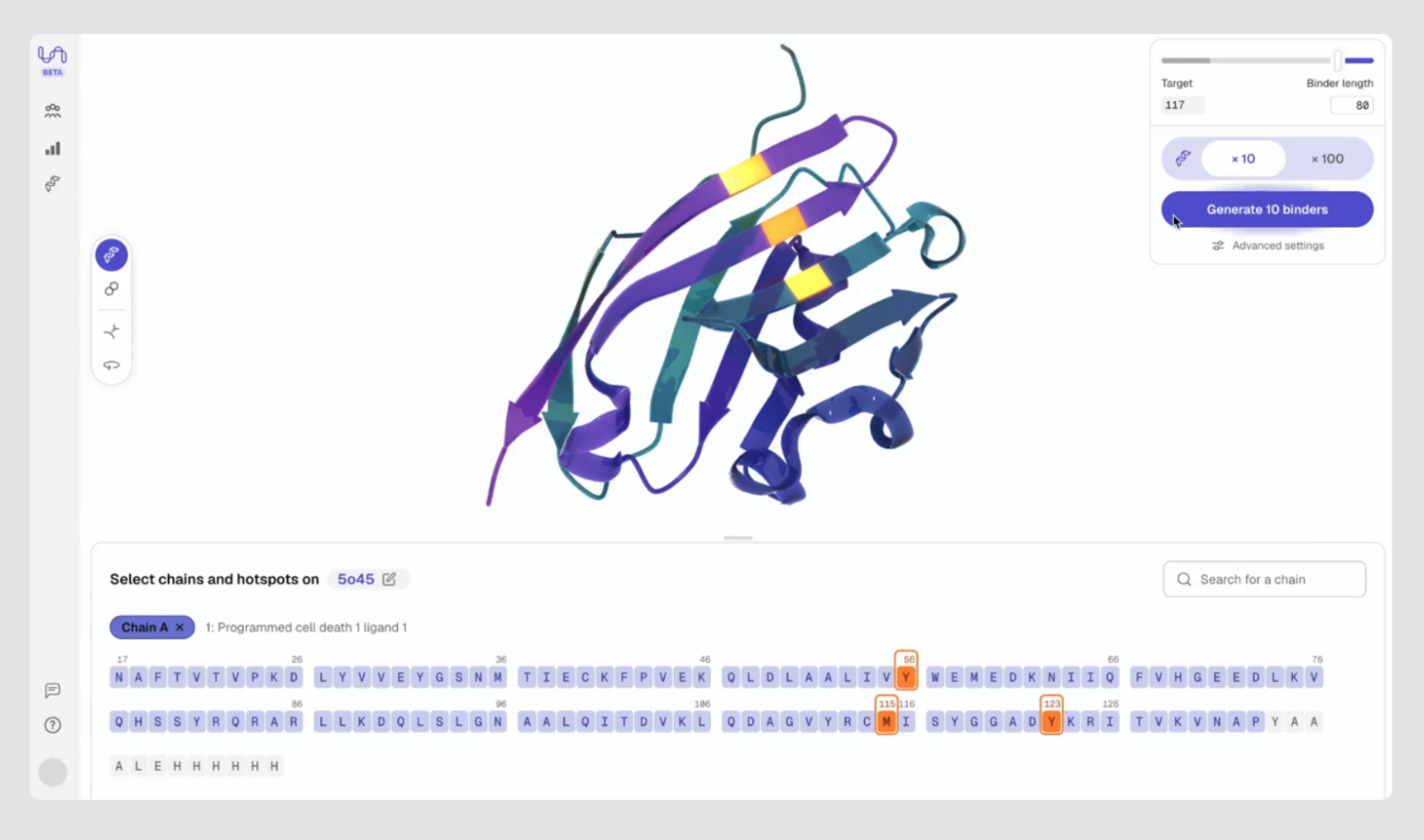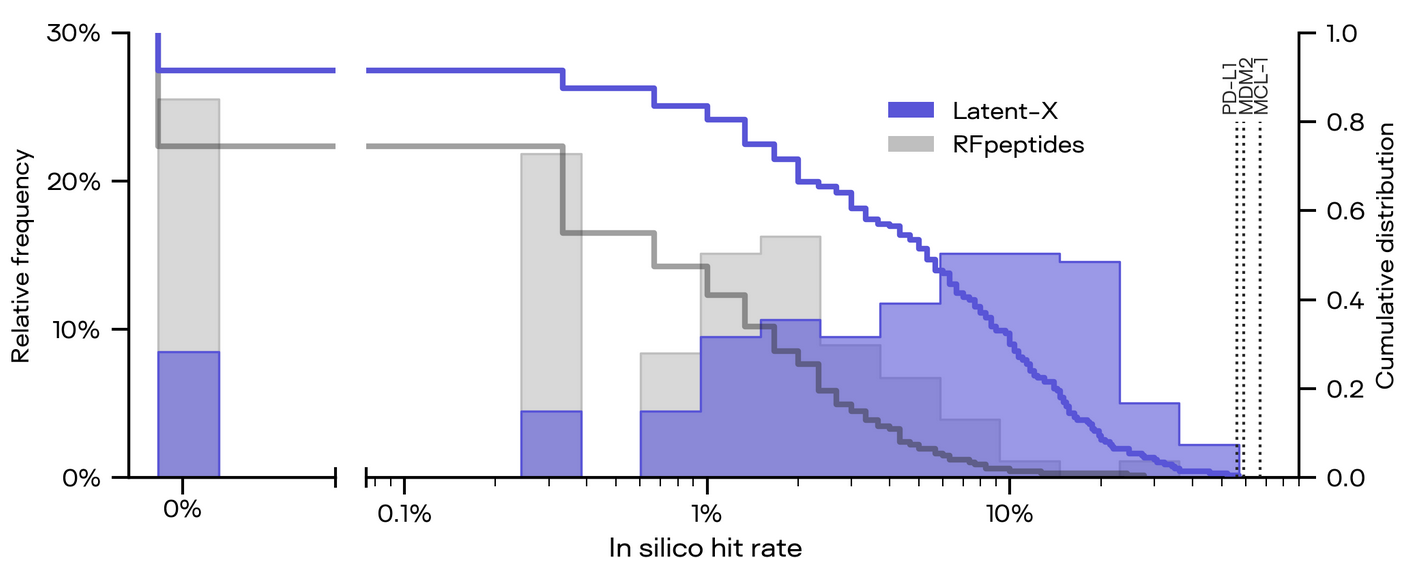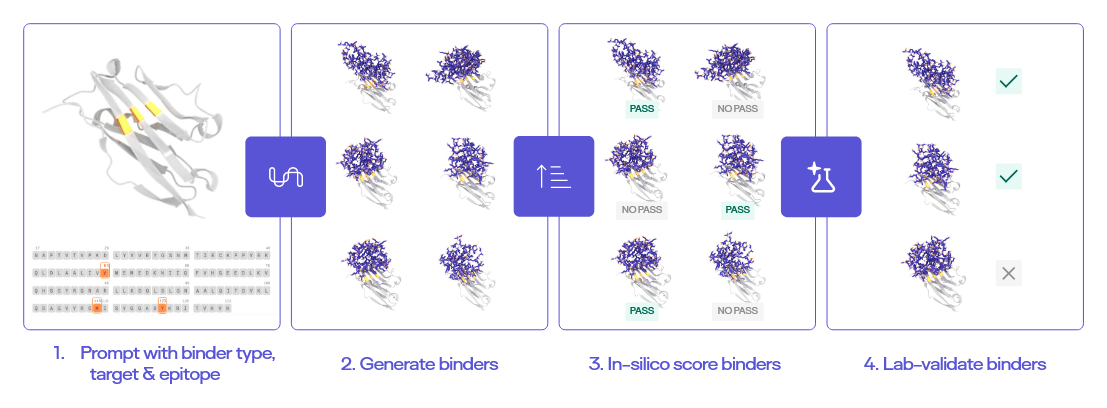Latent Labs Launches Web-Based AI Tool for Custom Protein Generation
Five months after emerging from stealth with $50 million in funding, Latent Labs has launched a web-based AI model Latent-X for programmable protein design. The release marks a shift from closed, proprietary pipelines to accessible tools aimed at academic and commercial users.
Latent-X is built to produce lab-viable binders from a small pool of AI-generated designs. The platform supports two therapeutic modalities—macrocycles and mini-binders—and is accessible via a web interface requiring no coding or internal AI infrastructure.
The Platform

LatentX UI
The tool is structured as a general-purpose model for protein binder generation, targeting applications in drug discovery where affinity and specificity are critical. It jointly generates sequence and structure at the all-atom level, learning biochemical constraints such as hydrogen bonding, pi-stacking, and epitope matching. This allows it to generate molecules capable of binding new targets with high success rates, including those not seen during training. The model’s outputs are experimentally validated, with reported hit rates between 91–100% for macrocycles and 10–64% for mini-binders across seven therapeutic targets.

Source: Latent Labs
The platform integrates the full design pipeline—from target upload and epitope specification to binder generation, ranking, and visualization. In internal wet-lab experiments, Latent-X delivered binders with affinities in the low micromolar range for macrocycles and as low as picomolar for mini-binders. This performance reportedly exceeds prior methods such as RFdiffusion and AlphaProteo in head-to-head experimental comparisons.

From technical report: The end-to-end binder design workflow.
Latent Labs emphasizes speed and accessibility as key differentiators. Binder generation occurs in seconds, over 10x faster than previous methods, and the platform includes a free tier for both commercial and academic users. The company frames Latent-X as a tool for making programmable biology broadly available, especially for teams without dedicated machine learning staff or infrastructure.
Technical report is available at Latent Lab's domain.
Context
Unlike AI-native drug discovery companies such as Xaira, Recursion, or Isomorphic Labs, Latent Labs follows a model-licensing strategy rather than building an internal pipeline of therapeutics. The base version of LatentX is free to use, with monetization planned for advanced features.
See also: 14 Startups in AI Protein Design: Platforms, Specialists, Modular Tools
Latent Labs was founded by a group of DeepMind and synthetic biology alumni. Key contributors include Alex Bridgland (AlphaFold 1–3), Annette Obika-Mbatha (DeepMind’s AI for Science), and Dave Yuan (formerly at Zymergen and Mammoth Biosciences). The company operates between London and San Francisco and combines model development with wet lab testing.
The February funding round included a $40 million Series A led by Radical Ventures and Sofinnova Partners, with participation from Flying Fish, Isomer, 8VC, Kindred Capital, and Pillar VC. Notable individual backers include Jeff Dean (Google), Dario Amodei (Anthropic), and Mati Staniszewski (ElevenLabs).
Latent Labs joins a growing cohort of teams, such as EvolutionaryScale and Chai Discovery, offering open foundational models in protein design—a space increasingly defined by generative AI platforms decoupled from proprietary drug programs.
Topics: AI & Digital